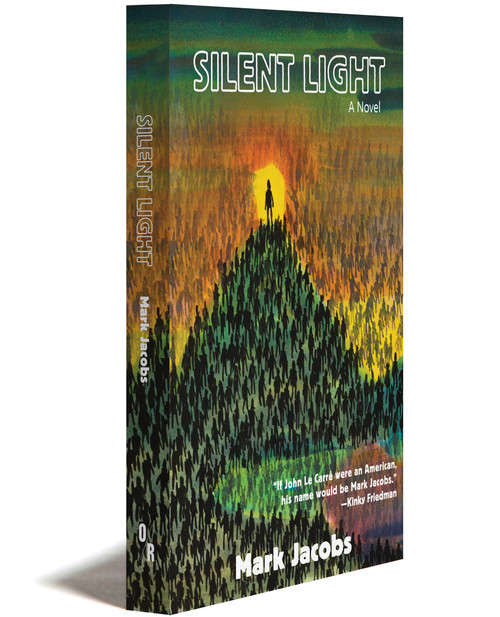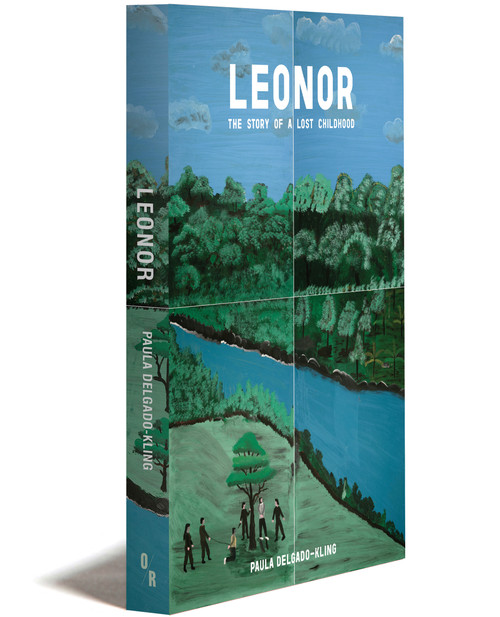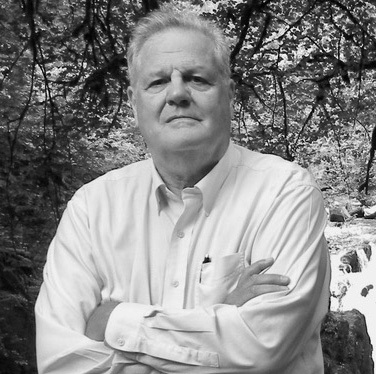Silent Light
“A feat of bravura storytelling from a dauntless writer at the peak of his powers.”
—A. Igoni Barrett, author of Blackass“A novel of consequence…its storytelling sensibility so assured, so dignified, it makes you marvel.”
—William Giraldi, author of Hold the Dark“Jacobs is surgical in capturing the heartbeat, the terror and the often-derailed promise of the American Dream.”
—Marita Golden, author of The Wide Circumference of Love“We all need the hope—the hope given, and received—with the last notes of this very great book.”
—Evans Hopkins, author of Life After Lifeabout the bookabout
At the start of Mark Jacob’s remarkable new novel, thirty-seven-year-old Smith wins a “stash” of diamonds in a poker game. The only catch: he has to find them.
A Louisiana native, Smith is employed on an oil platform off the west coast of Africa, while the diamonds are somewhere in the immense, war-torn Democratic Republic of the Congo. But Smith’s grown tired of the platform—one last adventure, he tells himself, and then, diamonds or no diamonds, he’s heading home.
Shortly thereafter, Smith meets a girl named Béatrice, who hails from a village on the other side of the country. This village, she tells Smith, is where his diamonds are—more than a thousand miles away on the patchwork of guerilla-patrolled roads that traverse the country. If he helps her get home, she’ll show him where the stones are. What follows is a harrowing tour of hell in which a not-so-innocent American abroad comes face-to-face with the legacy of European imperialism in the heart of the African continent. In stark prose, Jacobs reveals the limits of the western gaze to give us the story of a man who discovers you don’t have to travel to another country to get lost, and you don’t have to go home to be found.
“With Silent Light, Mark Jacobs, one of America’s great short story writers, establishes himself as a novelistic scion of Joseph Conrad…”
—Richard Wiley, author of Soldiers in Hiding and The Grievers’ Group
About The Author / Editor
Preview
It was the diamond that woke Smith. Even asleep, you could not say Congo without thinking diamond. Coming to consciousness he found himself jammed, flat on his back at the bottom of an unlit pit. He panicked, struggling to get up, but could not move. The knees of a demon kept him pinned to the black ground. Thanks to the rye, everything hurt. Then the diamond flashed, the demon let him go, and the stone’s clean light drew him to the surface. He grinned.
There was nothing wrong with getting rich. Fast or slow, it didn’t matter how you got there. Given the choice, Smith would pick fast. Diamonds, for example. Diamonds were fast. He had read up on the subject. The first thing you did if you acquired a bunch of diamonds was quit your shitty job. He was halfway there; he had the shitty job, ready and waiting for him to quit.
Lying on his back in bed he sang the first verse of “Jambalaya” because it made him think of home and because the hallowed image of first responders pulling Hank Williams’ misused body from a wrecked Cadillac Coupe Deville, sad as it was, had a storybook quality about it that never failed to lift Smith’s spirits. You could ruin yourself and achieve greatness.
He stopped singing after the first verse. He had been told by people whose judgment he trusted that he could not carry a tune. Any time he picked one up, it dropped and broke.
It was September, before the rainy season began but not much before. The hotel room in which he lay was in Brazzaville. Colonialism left Africa with two Congos. They are of vastly unequal size. Brazzaville is the capital of the smaller one. It stares out of the corner of its eye across the legendary river that separates it from Kinshasa, capital of the enormous Congo. Smith did not know much about colonialism, or the two Congos, or why Central Africa was the violent impoverished place it appeared to be. He was not stupid, or incurious, it was that his mind had a practical cast. He was good with machinery. He understood hydraulics and could fix just about anything that broke on an offshore oil rig. There had been little occasion in his life to think about broken countries or the people who lived in them.
Smith was thirty seven. A leopard was tattooed on the inside of his left forearm. He liked to say he was in Africa because his mother had sung French lullabies to him way back when, before exiting his life in search of a new one for herself. But that was a lie, intended to entertain anybody who would listen. The truth was one-word simple: escape. He had jumped at the chance to escape the trap of dead end mechanic jobs he was stuck in back at home. He couldn’t get any broker than broke.
in the media
Silent Light
“A feat of bravura storytelling from a dauntless writer at the peak of his powers.”
—A. Igoni Barrett, author of Blackass“A novel of consequence…its storytelling sensibility so assured, so dignified, it makes you marvel.”
—William Giraldi, author of Hold the Dark“Jacobs is surgical in capturing the heartbeat, the terror and the often-derailed promise of the American Dream.”
—Marita Golden, author of The Wide Circumference of Love“We all need the hope—the hope given, and received—with the last notes of this very great book.”
—Evans Hopkins, author of Life After Lifeabout the bookabout
At the start of Mark Jacob’s remarkable new novel, thirty-seven-year-old Smith wins a “stash” of diamonds in a poker game. The only catch: he has to find them.
A Louisiana native, Smith is employed on an oil platform off the west coast of Africa, while the diamonds are somewhere in the immense, war-torn Democratic Republic of the Congo. But Smith’s grown tired of the platform—one last adventure, he tells himself, and then, diamonds or no diamonds, he’s heading home.
Shortly thereafter, Smith meets a girl named Béatrice, who hails from a village on the other side of the country. This village, she tells Smith, is where his diamonds are—more than a thousand miles away on the patchwork of guerilla-patrolled roads that traverse the country. If he helps her get home, she’ll show him where the stones are. What follows is a harrowing tour of hell in which a not-so-innocent American abroad comes face-to-face with the legacy of European imperialism in the heart of the African continent. In stark prose, Jacobs reveals the limits of the western gaze to give us the story of a man who discovers you don’t have to travel to another country to get lost, and you don’t have to go home to be found.
“With Silent Light, Mark Jacobs, one of America’s great short story writers, establishes himself as a novelistic scion of Joseph Conrad…”
—Richard Wiley, author of Soldiers in Hiding and The Grievers’ Group
About The Author / Editor
Preview
It was the diamond that woke Smith. Even asleep, you could not say Congo without thinking diamond. Coming to consciousness he found himself jammed, flat on his back at the bottom of an unlit pit. He panicked, struggling to get up, but could not move. The knees of a demon kept him pinned to the black ground. Thanks to the rye, everything hurt. Then the diamond flashed, the demon let him go, and the stone’s clean light drew him to the surface. He grinned.
There was nothing wrong with getting rich. Fast or slow, it didn’t matter how you got there. Given the choice, Smith would pick fast. Diamonds, for example. Diamonds were fast. He had read up on the subject. The first thing you did if you acquired a bunch of diamonds was quit your shitty job. He was halfway there; he had the shitty job, ready and waiting for him to quit.
Lying on his back in bed he sang the first verse of “Jambalaya” because it made him think of home and because the hallowed image of first responders pulling Hank Williams’ misused body from a wrecked Cadillac Coupe Deville, sad as it was, had a storybook quality about it that never failed to lift Smith’s spirits. You could ruin yourself and achieve greatness.
He stopped singing after the first verse. He had been told by people whose judgment he trusted that he could not carry a tune. Any time he picked one up, it dropped and broke.
It was September, before the rainy season began but not much before. The hotel room in which he lay was in Brazzaville. Colonialism left Africa with two Congos. They are of vastly unequal size. Brazzaville is the capital of the smaller one. It stares out of the corner of its eye across the legendary river that separates it from Kinshasa, capital of the enormous Congo. Smith did not know much about colonialism, or the two Congos, or why Central Africa was the violent impoverished place it appeared to be. He was not stupid, or incurious, it was that his mind had a practical cast. He was good with machinery. He understood hydraulics and could fix just about anything that broke on an offshore oil rig. There had been little occasion in his life to think about broken countries or the people who lived in them.
Smith was thirty seven. A leopard was tattooed on the inside of his left forearm. He liked to say he was in Africa because his mother had sung French lullabies to him way back when, before exiting his life in search of a new one for herself. But that was a lie, intended to entertain anybody who would listen. The truth was one-word simple: escape. He had jumped at the chance to escape the trap of dead end mechanic jobs he was stuck in back at home. He couldn’t get any broker than broke.








